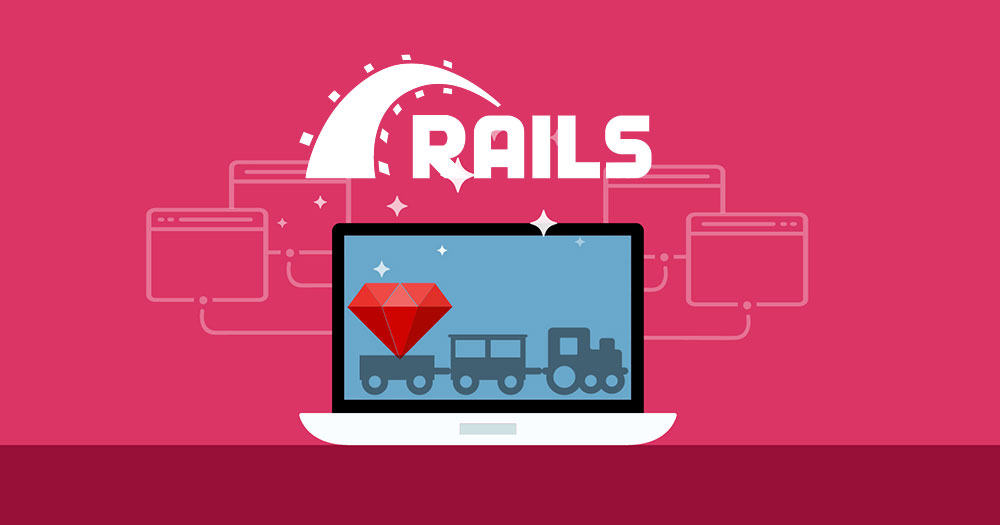
- Stats: 3565 2 0
- Author: admin
- Posted: January 18, 2018
- Category: Technology News, Website Design & App Development
6 Reasons why to use Ruby On Rails for your STARTUP
In today’s technological climate, the pace is fast and ever changing. This leaves startups with limited time to roll out products. Because of this, the tech stack must be carefully chosen and can make or break your success. Ruby on Rails is an excellent choice in these situations; so reliable in fact, that it is used by tech giants such as Twitter and GitHub. And why not? It’s fast, reliable and secure. So let’s look at the reasons why Ruby on Rails is a good option for your startup.
Ruby on Rails – The Basics
Before getting into the details of this language, it’s a good idea to have a basic knowledge of it. Experienced users will already know this information so if that’s you, you may want to skip this section.
Ruby on Rails (RoR) is a web framework based on Ruby language. With the help of Ruby on Rails, developers can build the back-end of a website or mobile application.
It bears some similarities to others frameworks, take it’s architectural pattern for app development for example. Like Angular or Django, it uses Model-View-Controller (MVC). But unlike the others, it comes with a variety of tools that lend to a faster development process. This is the main reason that Ruby on Rails is a good fit for most startups.
The original framework was rolled out as open-source software in 2004. In 2007 after Apple said that it planned to ship RoR with Mac OS X it gained popularity and has been going strong ever since. They now boast over 1,390,835 websites worldwide.
Advantages of Ruby on Rails
-
Fast Web Development Process
The main reason people like using Ruby on Rails is the speed. The web application development takes less time than any other leading framework. This is because their philosophy is to reduce the number of decisions developers need to make when creating something from scratch. They do this with a variety of predetermined configurations and defaults. This helps developers save time and allows them to focus on more important components of their project without getting bogged down by minor details. When desired, these details can still be controlled by the developer.
In addition to fast development, we can’t overlook the fast iteration. This is helpful for startups and businesses with tight deadlines. It also allows you to test the projects features in the dearly development stages, which saves both time and money.
-
Hassle-Free Testing
The testing process is paramount because it saves time, money and improves the user experience. The more quickly bugs are found; the more efficiently they can be fixed. Thankfully, Ruby on Rails has excellent testing abilities.
Developers will often write tests to ensure that their code is running smoothly and to reduce the likelihood of having to solve problems down the road. Ruby on Rails helps developers because the framework is able to generate an appropriate test file for every code file created. If you need more control, there are numerous tools that allow you to track the testing process on an ongoing basis. For example, one tool, called CircleCI, will email developers a notification if a test fails.
-
One of the most secure frameworks
Hackers are constantly seeking ways to crack into tech companies and user accounts. As a business grows, they become more attractive to hackers and are more vulnerable to attacks. Ruby on Rails works diligently to reduce security weaknesses. Security features are adapted and added on an ongoing basis in order to keep older versions of the framework up to date. This is particularly helpful for startups and small businesses that don’t have the resources to update their framework with every new roll out.
Compared to other frameworks, Ruby on Rails is one of the most secure. It has built in features to prevent SQL injections, cross-site scripting and other threats. However it is important to be aware that not all of the security benefits are automatically available. In some cases separate plugins need to be installed.
For best results we recommend following a secure development lifecycle. Ruby on Rails helps with this by providing you with security supports on the framework level so you don’t have to worry about overlooking something and being exposed.
-
Easy Product Communication Architecture
Today, most web services are designed to communicate and interact with each other. The architecture of Ruby on Rails allows you to ensure your products communicate efficiently. So for example, if your business already has a website and you are now developing a mobile app, Ruby on Rails lets you build a Rest API to pull the necessary data (including content, graphs, statistics etc.) from the website making the creation of a mobile app or any other coordinating service effortless. For startups and businesses this means that your project can expand and interact with you as your company grows, without unnecessary expense.
-
Supported by PaaS Services
Platform as a service (PaaS) third-party providers offer software and hardware tools that are commonly used for app development. Some of the better-known PaaS providers include Heroku and Windows Azure. They allow developers to easily manage and deploy web apps. Most of these services support Ruby on Rails and allow your app to but pushed on the cloud with minimal effort. Their support also allows you to scale your computational power with ease.
-
Large User Community
The Ruby on Rails community is large and growing which helps move the technology forward. In fact, the community is more than double the size of Django, another Ruby-based framework. The larger the community, the more help available when solving complicated tasks or navigating a problem that you don’t know how to fix.
The user community is also responsible for the creation of reusable libraries and program gems that can be shared and used by other members. These include implementations like authentication and image processing. Some shared programs even help accelerate your development project.
When to Use Ruby on Rails
There are several project categories that work well with this framework especially from a community perspective. In right hands, Ruby on Rails can do almost anything.
There are too many categories to talk about each in detail, but here are a few worth mentioning to give you an idea of what the framework can be used for.
-
Content Management
If a project has a large amount of content, Ruby on Rails is a good choice. Whether you’re dealing with audio files, articles, databases or other forms of content, it offers simple navigation and facilitates easy uploading and managing.
-
E-Commerce
Ruby on Rails provides several features for e-commerce sites. It has many user-friendly features and a modular approach for the development of sites.
-
Customized Databases
Most new projects will require a database structure that accommodates your business model. Ruby on Rails allows you to build customized database solutions that fit your unique needs.
-
Membership Websites
Often a project will require social networking connections and membership options. Ruby on Rails allows for this and has numerous plugins that will accommodate any challenge associated with social networking with minimal effort.
Find top Ruby-On-Rails Development Agencies with legit insights & reviews at 2Easy.com.hk now






